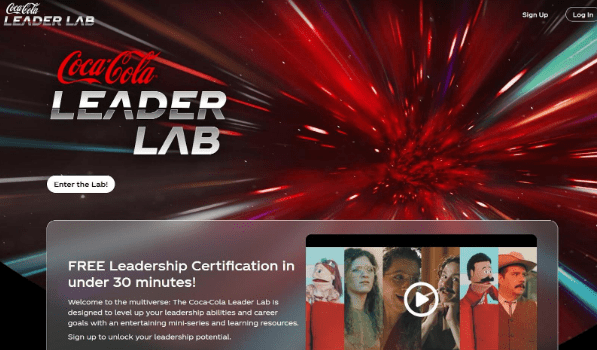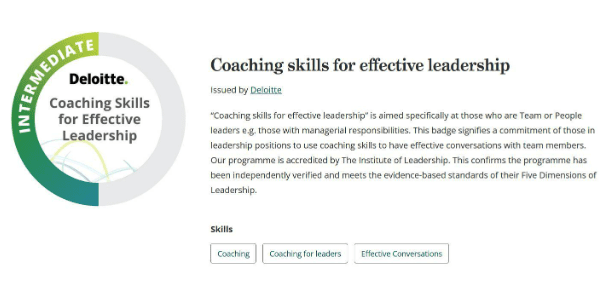What type of leader should a manager of the future be? Should one become more people-centric or tech-first? (Spoiler: both!) What skills should modern managers possess to lead their teams to peak performance and a thriving business in the coming years?
These questions arise in front of you these days, not without a serious reason. In fact, less than half of managers (48%) strongly agree that they have all the necessary skills to do their job exceptionally. So, there’s undeniably a skills divide, and it should be bridged.
Also, when effective meetings can happen even in pajamas or when AI assistants help leaders monitor the workforce and guide them toward the right decisions, there’s a huge demand for expanding the 2025 manager’s skill set with entirely new proficiencies.
Yet, it doesn’t mean you should throw yesterday’s management playbook into the recycle bin and forget about it. Some intrinsic competencies for leaders are here to stay from the past. Which? Let’s look at both: old and new, soft and hard, skills obligatory for every modern manager. Afterward, we’ll share the best tips on how to train managers for future-proof skills. Dive in!
Table of Contents
- Essential Skills Every Manager Should Develop During Training
- How to Train Managers in the Modern Workplace—Best Practices and Examples
- Developing Future-Ready Managers with Outback Training
Essential Skills Every Manager Should Develop During Training
In tomorrow’s skill-oriented companies, corporate training for managers typically embraces the following skill sets (soft + hard).
5 Soft Skills Critical for Modern Managers
Emotional Intelligence, aka Emotional Quotient (EQ)
Not even IQ, but EQ comes first while driving the future of people management. Here’s why: Nine in ten of the top-performing leaders are emotionally intelligent, and 71% of employers value this competency even more than tech skills. So, you can’t overlook the importance of emotional intelligence in leadership training.
At this point, it’s also crucial to bust several myths that grew up around it:
- Myth #1. EQ is all about being overly emotional (or another extreme: suppressing emotions). No, it is the ability to capture, decode, understand, and manage personal emotional signals and the emotions of others.
- Myth #2. EQ can’t be measured. (It can be—use tools like EQ app, TalentSmartEQ, or the MSCEIT test)
- Myth #3. EQ can’t be trained. Debunking comes in three, two, one…
You can boost your managers’ EQ skills with proper training—the Emotional Intelligence program at Outback!

Productive Communication
Adam Young, CEO and Founder at Event Tickets Center, says, “Even with all the communication tools at hand, the managerial skill gap is rather wide in this context. Nearly 70% of managers feel uncomfortable when communicating with their team members in general, and 37% say the same about giving employee feedback in particular.”
So, a manager’s path to effective communication should lie through:
- Active listening
- Body language
- Transparency
- Negotiation
- Feedback sharing
- And other communication skills.
Again, Outback offers a perfect skill development program for this need: Clear Communication.

Coaching
Actually, 90% of companies expect their managers to coach direct reports. However, over half cite a lack of coaching skills in leadership teams.
If you also notice this competency missing in your leadership team, there’s a splendid opportunity to tackle this problem with the right training program for managers at Outback:
- Coaching Fundamentals (to build coaching skills from scratch)
- Advanced Coaching (to improve the existing coaching skills)
Humanized Leadership
You’ve most probably heard this oft-repeated truism: “People don’t quit jobs; they quit managers.” But what managers, exactly? They are more likely to leave robot-like bosses who build transactional relationships with employees through the do-this-and-report-back approach.
In contrast, Eric Do Couto, Head of Marketing at Visualping, claims, “People-oriented leaders should build a human-to-human link with each worker, striving for 100% understanding, creating meaningful bonds, opening up to them, and encouraging them to do the same in return. Practicing two-way trust in this manner is one of the future-ready qualities of good managers.”
Here’s what matters most for humanized management:
- Authenticity
- EQ
- Empathy and compassion
- Trust
- Diversity and inclusion
- Support
- Coaching/mentoring mindset (rather than micromanaging)
For example:
Accenture Brazil embarked on a humanized leadership learning journey with a sharper focus on three aspects: DEI, psychological safety, and compassionate leadership.
Flexibility, Resilience, and Change Management
Saving the best for last?
Adrian Iorga, Founder & President at 617 Boston Movers, says, “Quite possibly. Closing the list, this trio belongs to the top soft skills every manager must have for 2025 and beyond. They should master not only the art of managing people but also be ready to manage change, develop resiliency to challenges, and adjust to the circumstances whenever needed.”
For example:
If 2020 taught us anything, it’s that any plan can always be re-shaped or even turned 180 degrees. Back then, many companies had to rapidly switch to remote leadership and make lightning-fast decisions to save their businesses from failure amid the pandemic outbreak. Many didn’t survive… It’s not surprising at all, if you think about it, as 70% of change initiatives, even when planned far in advance, fail overall.
So, it becomes a matter of business survival today for managers to become more flexible, resilient, and capable of reinforcing evolutionary changes in their companies.
The Best Hard Skills Critical for Modern Managers
Digital + Social Media Fluency
If a team manager doesn’t know how to organize a virtual meeting via Zoom (or any other video-conferencing tool) or take and share a screenshot, or if one is scared to enter LinkedIn like a haunted house, connection breakdowns will not be long in coming.
Forward-looking managers don’t have to be coders (unless it’s a required job skill) or social media stars. Yet, they must be digitally fluent and actively present on social media. For instance, an HR manager can’t miss out on the impressive potential of digital collaboration and remote assistance from a virtual assistant staffing agency to hire pre-vetted, skilled specialists, an ATS hiring system (take PeopleForce or Manatal), or TikTok (not just LinkedIn) to scout out the top talent.
Mind: Active social media presence isn’t just an option; it’s an obligatory skill for a modern team leader because—whether you like it or hate it—socials are the new town square where life’s highlight reels are playing on.
AI Competency
Yes, modern managers will have to “byte” the AI bullet. Otherwise, they’ll get left behind. In fact, 94% of business leaders claim that artificial intelligence will be critically essential within five years to stay competitive in the market. So that’s when AI becomes one of the topmost hard skills that matter most for managers to do the following with it:
- Generative AI → Generate presentations or summarize meetings with tools like Beautiful.ai, ChatGPT, or Notion AI.
- Workflow Automation AI → Automate workflows and boost productivity in teams with Salesforce Einstein, Nimble AI, or Zapier AI.
- Analytical + Predictive AI → Keep an eye on other brands with AI-driven competitor analysis tools and master proactive decision-making based on forecast data from platforms like HubSpot Forecasting or Zoho Analytics.
- Learning AI → Coach and train workers with AI-powered LMS systems, such as EdApp or TalentLMS, or specialised AI tools for English vocabulary.
- Conversational AI → Streamline HR management with AI chatbots or internal features in communication platforms like Slack GPT.
How to Train Managers in the Modern Workplace—Best Practices and Examples
Identify the Skills Gap
According to Ian Gardner, Director of Sales and Business Development at Sigma Tax Pro, “Before you invest in managers’ learning and development (L&D), it’s important to conduct a skills gap analysis and only then decide on the proper leadership training session(s) to close the gap(s).” For that, the sales team leader recommends running surveys, skill assessment tests, or even asking employees directly. “After all, sometimes the people you manage might see better what’s missing from their perspective.”
Let’s say you’ve spotted the must-do: to AI-empower your managers. In that regard, AI workshops for leaders are commonplace these days, especially in teams going AI-first.
For example:
The OML crew learned to implement Google Gemini, Veo3, and other GenAI tools amid the AI leadership workshop for marketers.

Or, you may notice several skill gaps and bridge them consecutively.
For example:
Budge Studios focused on two fundamental soft skills for managers with interactive sessions for each: Emotional Intelligence + Coaching Fundamentals, arranged by Outback.
Launch a Custom Leadership Training Program for Managers
Let’s review several cases of custom leadership training programs at Coca-Cola, Caterpillar, and Cisco.
Coca-Cola
The beverage corporation created the Coca-Cola Leader Lab to train frontline managers on the six Cs of leadership:
- Casting vision
- Critical thinking
- Coaching mentality
- Collaboration
- Conflict resolution
- Communication
Remarkably, it contains entertaining bite-sized episodes in the multiverse, an immersive and interactive digital space designed to engage Gen Z leaders as they enter the modern workplace.

Caterpillar
To inspire the next generation of leaders who will be tech experts in the industry, Caterpillar launched a Leadership & Technical Development Program (LTDP).
The LTDP consists of three key vectors:
- Procurement track
- Operations Leadership track
- Supply Chain Management track
Cisco
- JUMP Program for Women in Leadership
The JUMP aims to develop future-forward skills in middle-level female managers at Cisco.
- Next Generation Leaders (NGL) Program
The NGL includes topics like unconscious bias, EQ, allyship, and others to grow stronger managers and build a brighter, inclusive workplace of the future.
Encourage Leader-to-Leader (L2L) Mentorship
For Nicolas Breedlove, CEO at PlaygroundEquipment.com, it’s significant that managers should become mentors for each other informally and formally. “This can be a casual knowledge exchange during a coffee break or a leadership team meeting in a more formal, structured setting. For that purpose specifically, we organize regular manager meetings. And I must say that gathering as a team of leaders and sharing feedback and insights pays off in the short and long run.”
Let’s review other examples.
Informal L2L Learning Example
Sean O’Neill, an ex-Amazonian and CPTO of Syncron, carried on the book club tradition from Amazon to his management team. They casually discuss books on leadership, corporate culture, communication, etc.

Formal L2L Training Example
The Bausch and Lomb team regularly gathers for L2L learning sessions with group exercises, such as how to build authentic leadership or how to give meaningful feedback to employees via performance reviews.

Measure and Recognize Their Learning Achievements
If you don’t measure and celebrate the L&D progress among managers, it may seem like you’re organizing leadership training just for the sake of a tick in your plan.
Monitor and analyze how they grow and consider different types of manager appreciation, like these:
- Social media spotlight
- Leader’s badge/award
- Diploma/certificate of leadership
- Company-wide email greeting
- Personal video message with “Congrats!” from senior leaders
- Leadership retreat
For example:
Deloitte managers can receive a “Coaching Skills for Effective Leadership” badge after completing the dedicated program.

You should also think of highly personalized gifts to tailor recognition to each manager individually. For instance, consider custom frames for diplomas or certificates to always remind them of their most significant milestones and triumphs in professional growth.
Developing Future-Ready Managers with Outback Training
Ready to train your managers for the future of work?
It’s time to expand their skill sets with Outback’s custom training programs. Let your managers grow into people-first, communicative, emotionally intelligent, resilient, and digitally savvy (not without AI’s help!) coaches and leaders your team actually wants to follow.
Author Bio
Catherine Schwartz is an author who specializes in employee well-being and engagement.



